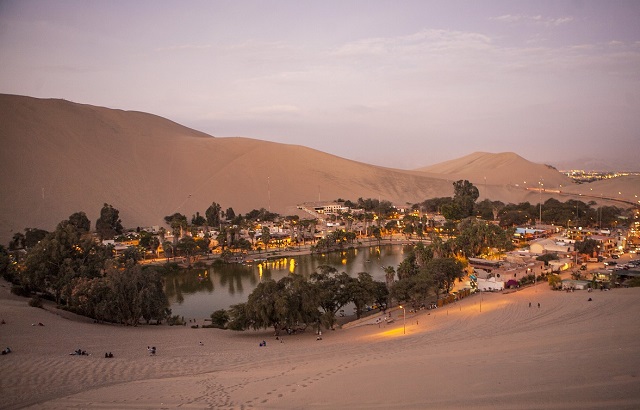It’s probably a myth, but I have heard that weather forecasters in the UAE are not allowed to report when temperatures hit 50 degrees Celsius.
Even if it’s not true, I can understand the logic behind it. That’s an alarming number.
When I was in Dubai for the International Adviser Future Advisory Forum on 13 October, I experienced 39 degrees – which was plenty.
Whereas the effects of global warming in the UK seem to be wetter and wetter summers, other parts of the world are experiencing longer periods without rain.
So, I found it a little surprising, given the UAE is mostly desert, that ESG strategies seem to be gaining little traction.
Kind of, but not really
Asset managers and investment firms are bringing ESG products to market – but, anecdotally, uptake has been slow.
In the lead up to COP26, my inbox has been inundated with press releases from firms signing up to net zero initiatives, carbon neutral pledges, fossil fuel divestment etc.
It is something of a catch-22. International businesses have made commitments, so they need to ensure that ESG products are available. But UAE investors – retail and institutional, by all accounts – seem unmoved by the offering.
At the Dubai Future Advisory Forum, I asked the financial advisers to respond to the following statement: ‘ESG is important to my clients’.
- Absolutely – 26%
- Somewhat – 43%
- Not really – 29%
- Definitely not – 3%
Not exactly music to the ears of any ESG fund managers working in the UAE.
Local factors
Lumping investors together as being pro-ESG or anti-ESG based on their country of residence is unhelpful, given there are many factors at play. Not all Nordic investors are passionate environmentalists.
Within the context of the UAE, it may be because the push is coming from the finance industry as an extension of a global corporate strategy – rather than being driven by the government.
The region is also home to takaful insurance and Islamic finance; which exclude products and companies that are non-compliant with religious tenets. Not true ESG but, in many instances, pretty close.
Since inception, ESG products have also had to fight against the belief that investing in these strategies mean you compromise returns. According to several sources, Dubai clients still have unrealistically high performance expectations when compared with their global peers – further making ESG unappealing.
But it’s not all bad news
As outlined by our keynote speaker, Praemium UK & International’s head of implementation, Roopam Janda, the UAE lags western regulation by a couple of years.
She cited examples such as BOD49, CPD/professionalism standards and data protection – all of which emerged several years after similar pieces of legislation were unveiled in the UK.
So, even though the UAE isn’t clamouring for ESG strategies at the moment, it doesn’t mean they won’t be in the near future.
Additionally, the success of the DIFC’s pension scheme is expected to see similar programmes rolled out across Dubai proper, replacing the existing end of service gratuity system.
It will create bigger pools of ringfenced assets, which could see more institutional money flow into ESG strategies. This may take several years to manifest but would be a shot in the arm for the sector.
Parched earth
One other factor that looks set to change over the coming years is that the population of the UAE will become more settled.
Given the transient nature of the people currently living there, roughly 88% of whom are not Emirati, it is understandable that their focus is on living life, earning money and making plans to move back home or to another jurisdiction.
But, with the UAE government making it easier to remain in the country should they lose their job or retire, greater numbers of people may pay closer attention to how the environment around them is changing.
I appreciate that this article has included a lot of ‘may’ and ‘could’ – but the direction of global travel has practically been chiselled in stone.
With oil swiftly becoming persona non grata – the next most valuable asset on the planet, in my view, becomes fresh water.
And nowhere is the need for H2O going to be felt more acutely than in and around the deserts of the world.
But while you can lead a horse to water, it will only drink when it wants to.








